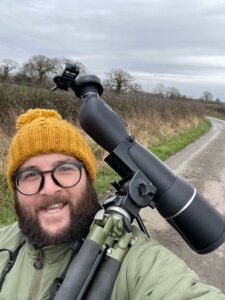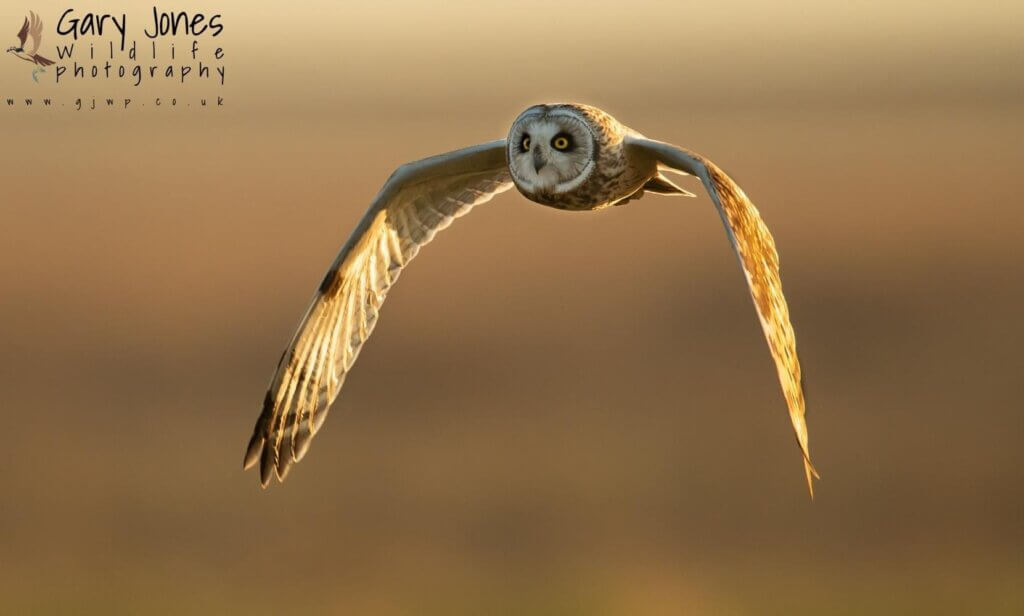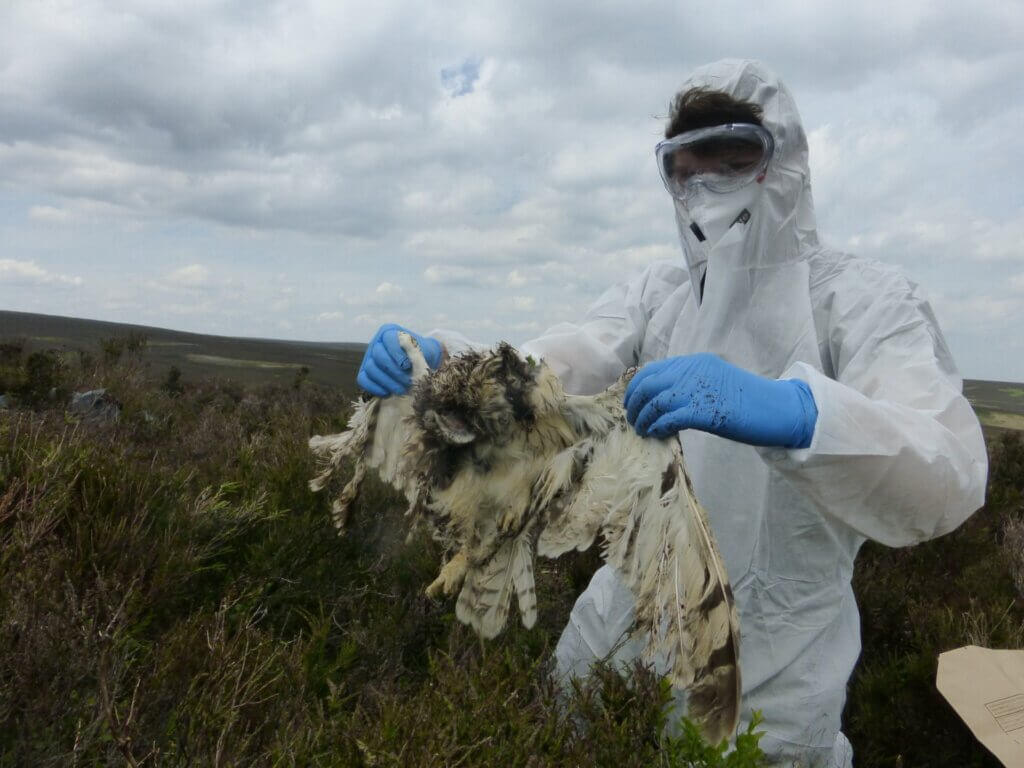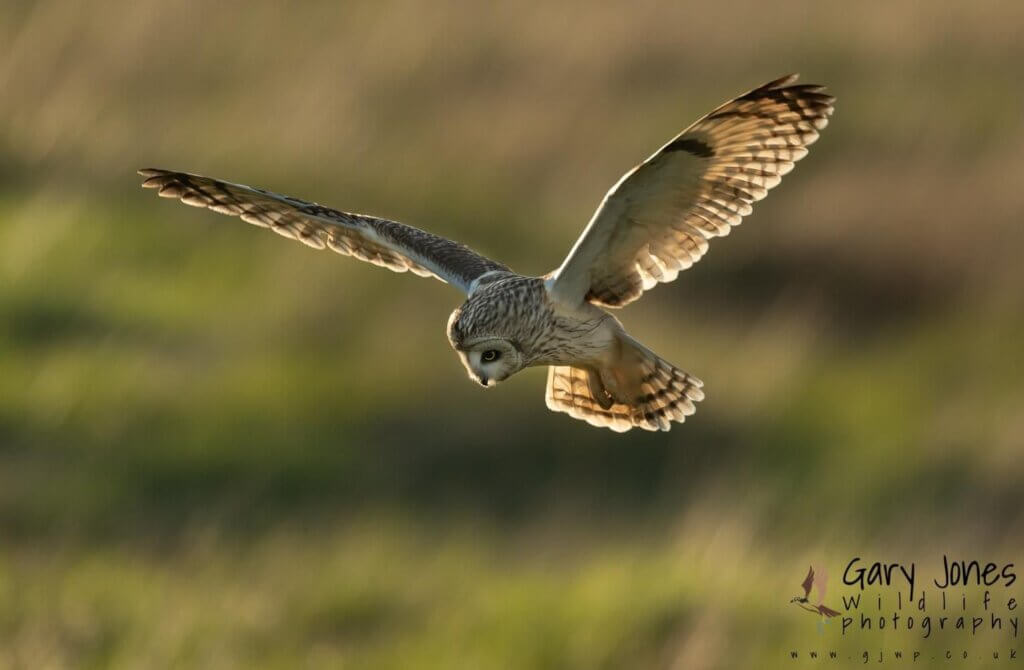 Based on the Cheshire/Flintshire border. Founding trustee and Chair of Raptor Aid CIO a UK based charity with a focus on birds of prey and their conservation.
Based on the Cheshire/Flintshire border. Founding trustee and Chair of Raptor Aid CIO a UK based charity with a focus on birds of prey and their conservation.
A licensed ringer and field worker covering birds of prey as an active member of several raptor study groups across the UK.
Twitter: @raptor_jimmi
“You’re Joking – Not another one!”. That was the response to a BBC news reporter by Brenda from Bristol when she was told about another general election in 2017. This response went viral and Brenda became an internet sensation, but what on earth has this got to do with my guest blog? Well, maybe some of you have the same response as Brenda when another new crowd funder comes along, especially in January. I’m sorry to say however, that’s exactly why I’m here, to launch a crowdfunder for a cause that’s incredibly close to my heart and a species that is in my opinion one of the most exciting owls found in the UK. I should introduce myself first though, you’ve already met Brenda after all, and she has nothing to do with the blog.
I suppose the easiest way to introduce myself is an all-out bird of prey or raptor fanatic, a full-on geek, I’ll talk a glass eye to sleep when it comes to birds of prey and for me and in my totally biased opinion, they are the most exciting, entrancing, and enthralling group of birds you can get. A more professional response would be that I’m the chair and founding trustee of Raptor Aid, a small UK-based charity that focuses on birds of prey and helping people learn about this group of birds, the threats they face and how people might make a difference – click here. I’m also a licensed ringer under the BTO and a field worker carrying out raptor monitoring with several raptor study groups, I like nothing more than being out monitoring birds of prey and if I’m not doing that I’m sharing this work through Raptor Aid.
Raptor Aid began life as a blog and gradually over time Raptor Aid evolved to include public talks and working in schools to educate children about our natural world with a focus on raptors. We gained charitable status in 2018 and this was primarily to add structure but also in my eyes build trust and longevity with our supporters. It began with three trustees including myself who was the driving force, the day-to-day doer but of course, no one takes a penny, and we all add value, our funds go into the pot to support raptors. When Covid hit that put a complete stop to external events and school visits and it gave me time to reflect and think about the overall direction of the charity. We haven’t been alien to supporting other conservationists or organisations and in the first year of charity life, I’d already made my first trip to the Philippine Eagle Foundation to forge a bond and support their work. During the pandemic I sat down with the other two trustees and discussed our direction, intending to focus on supporting individuals and organisations working hard for birds of prey, that is where our small grants fund began and is now hopefully going to be the core of what we do at Raptor Aid.
I’m an optimist, in an age where the world is burning and politicians only seem to have one interest (I’ll let you decide what it is) I believe in investing in people, putting trust in those who want to make a difference for birds of prey, our environment and better themselves. That is what I want to achieve with the Raptor Aid Grant Fund. The grant fund aims to offer small grants to individuals or organisations carrying out conservation work for birds of prey, maybe buying some binoculars for an eco-school or Peregrine watchpoint, providing tree climbing training for a raptor biologist, colour rings for species-specific projects or supporting someone presenting a scientific paper or poster at a conference. As someone who works in the field of raptor conservation, I am aware of the value and difference a small grant of £500 can make to a fledgling project and the boost it can give to that individual or group leading it. Raptor Aid is only small and conservation costs money, crowd funders have become a valuable tool and public support matters, more of that later.
I believe to achieve anything we need to collaborate, in what seems like a period of looking out for number one, i.e. the human race, irrespective of the impact on the natural world some of the greatest friendships and conservation efforts I have seen come from collaborating, sharing ideas and knowledge to progress together. That is why for this crowd funder Raptor Aid has teamed up with the Northern England Raptor Forum (NERF) to support them in their new project satellite tagging short-eared owls – I’ll come onto the nuts and bolts of the project shortly. Who is NERF though? They are a superb example of collaboration, as the name suggests they are made up of 11 raptor study groups across the North of England, Cheshire being their most westerly group reaching up to Durham and Northumberland at their Northernmost range. Raptor study groups are interesting entities and probably worthy of a guest blog all to themselves, once exclusively made up of middle-aged men meeting in the corner of a local pub to secretly discuss their observations and ‘patches’ I’m pleased to say based on my experience the diversity and inclusivity have got better – it could, of course, be so much better, and it will. I have been lucky to attend and take part in several NERF meetings and conferences. Whilst a lot of what they do probably goes unnoticed by the masses, a lot of stuff does go on, before you even mention the thousands of hours amassed annually in fieldwork by the member groups – their input and voice for raptor conservation is invaluable. You can read more about NERF, including statements about SEO persecution. You can also download their Annual Reports from the website – click here.

Why short-eared owls? Why satellite tagging? Let’s start with the target species, firstly, if you haven’t had the good fortune of observing short-eared owls (SEO for ease going forward) then you have missed out. One of the five native UK owls (breeding annually, let’s not start that argument) this species often shows up in the most unlikely of places in winter months, one of my best ‘off the cuff’ raptor-related observations was when a group of six SEO’s turned up and hunted a rough patch of grassland right on the edge of my home city. It was the surrealist thing watching these owls hunting amongst dog walkers, oblivious to the backdrop of a busy city and evening rush hour and then three days later they were gone as if it was a dream. These birds are truly nomadic, appearing some winters in greater numbers bolstered by birds from the continent they will work an area hunting prey and then move on. During the breeding season in the UK, this bird is traditionally a species of the uplands, holding its own when it comes to hunting a moorland or bog (some of my friends still call them bog owls) quartering with ease, often during the day, looking but most importantly listening for small mammals, I’m sure a chubby vole is a firm favourite meal.

I make life sound idyllic for these birds wandering far and wide but that couldn’t be further from the truth, this species faces many pressures and that is precisely what this project wants to help understand, one such abhorrent pressure is illegal persecution, I’m sure many readers of this blog are aware of the targeted assault on birds of prey in the uplands but an owl whose primary food source is small mammals – no kidding! Shot and stamped into bogs, stuffed into dry stone walls in an attempt to hide the evidence this species is treated with the same intolerance as the other birds of prey it shares the uplands with. Satellite tags don’t just provide scientific data, they act as a beacon should a bird carrying one become the victim of illegal persecution.
The British Trust for Ornithology (BTO) categorises this species as amber-listed, a species with unfavourable conservation status across Europe. This bird is transcontinental, geographical boundaries don’t fall into its nomadic lifestyle and for biologists and fieldworkers to understand how this owl uses the UK landscape and its relationship across its whole range they need to engage with technology.
John Calladine, BTO & lead author of the recently published paper on SEO movement sums it up perfectly “This new knowledge has significant implications for attempts to protect and conserve this species, and underlines a need to collect information on Short-eared Owl populations from sufficiently wide geographic scales and/or over the long term. Importantly, conservation action for the birds will need to be on a similarly wide scale.” John continued “This study was only possible because of the generosity of those individuals and organisations who provided the funding necessary to purchase and deploy the tracking devices fitted to these amazing birds.”
Steve Downing, Chair of NERF and the SEO tagging project licence holder said, “Short-eared Owls are magnificent, enigmatic birds. They are very difficult to monitor. Even as young chicks they wander far away from their nest as soon as they can move. Once they fledge, they follow their food across the width and breadth of Europe and even venture into North Africa. If we are to protect the birds that breed in the North of England and then migrate, sometimes for thousands of kilometres, we must understand how they move through their habitat range. Partnering with our colleagues in Raptor Aid and the European Short-eared Owl Network we can make a difference in protecting this amber-listed species. Your help will aid us to fulfil our mission”.
NERF’s project is the first to research SEOs in England using satellite tags. They aim to add to that knowledge and that is why Raptor Aid wants to support them with the purchase of 3 satellite tags. We can’t do that without the generosity of you and your friends. Take it from someone who operates a small charity, that a £5 or £10 donation when multiplied across lots of individuals can and does make a real difference.
Please contribute to the crowdfunder – click here

Donation made, glad of the opportunity to contribute. What’s the betting that theres as many losses with no tags recovered on the lovely cosy, grassy and vole-filled, predator-free fringes of grouse moors, as there is on their perilous journeys across the north sea?
Donation made. Sat tags for research/monitoring is one of my favourite things to support.